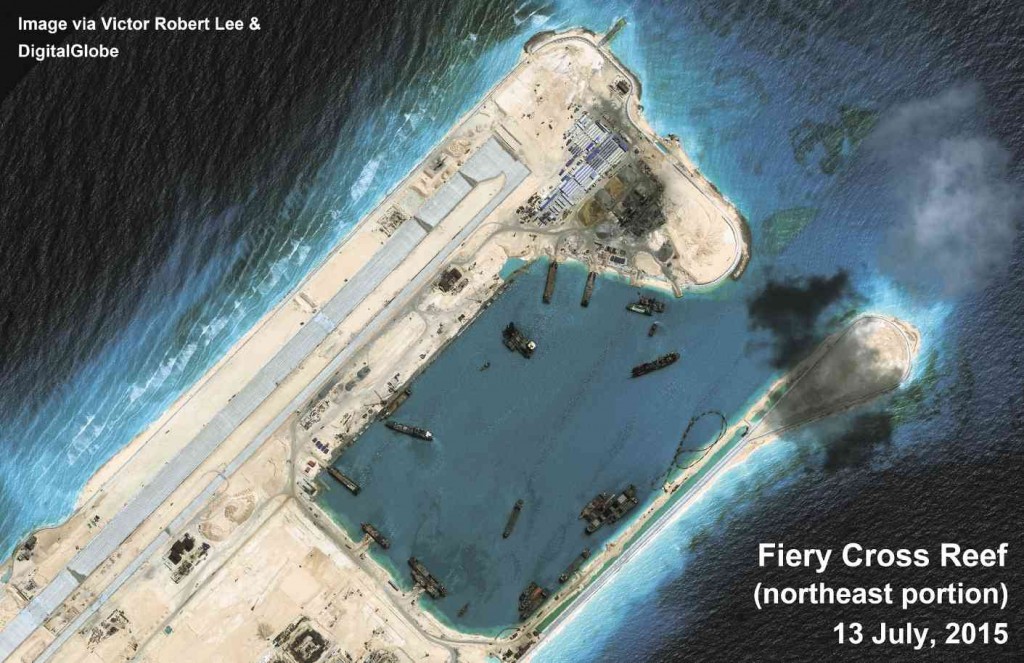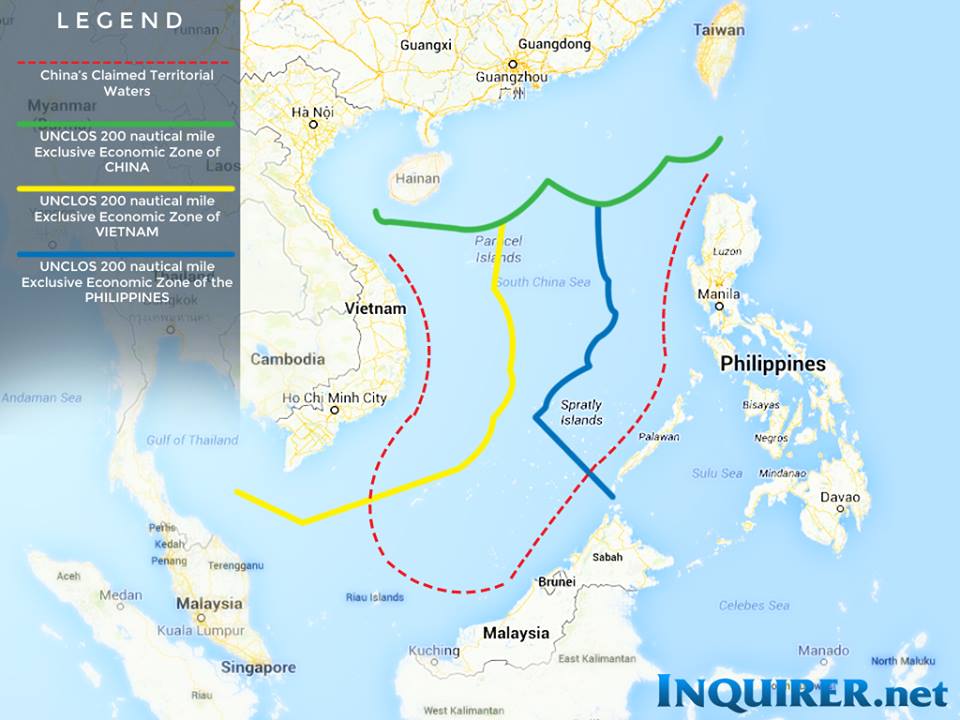South China Sea Watch: China rejects island building freeze

DISPUTED REEF Photo from the air shows construction activities undertaken by China on Kagitingan Reef (Fiery Cross Reef), including an airstrip, in a disputed area in the South China Sea. The Philippines and China are among several countries disputing ownership of the reefs located on the Spratly Islands. PHOTO BY VICTOR ROBERT LEE AND DIGITALGLOBE
The dispute over the strategic waterways of the South China Sea has intensified, pitting a rising China against its smaller and militarily weaker neighbors who all lay claim to a string of isles, coral reefs and lagoons mostly in the Spratly and the Paracel islands. Only about 45 of them are occupied. The area is one of the world’s busiest shipping routes, rich in fish and potential gas and oil reserves, but it has now emerged as a possible flashpoint involving world powers and regional claimants.
A look at some of the most recent key developments:
Divisions among Asean members water down anti-China statement
At a meeting of foreign ministers from the 10-member Association of Southeast Asian Nations, divisions over how to deal with China again split the regional bloc. The Philippines and Vietnam demanded a more robust statement condemning China’s island-building in disputed waters close to their shores, while Beijing’s allies Cambodia and Laos worked to dilute the tone of the final wording, according to diplomats present.
The ministers said in their joint statement that they “took note of the serious concerns expressed by some ministers” on land reclamations in the South China Sea, without mentioning China by name. They did say that the offshore constructions “have eroded trust and confidence, increased tensions and may undermine peace, security and stability.” They also called on all parties to “exercise self-restraint in the conduct of activities that would complicate or escalate disputes” — a standard line which have been used repeatedly in the past.
The wording is a compromise between two Asean factions. Above all, the group wanted to avoid a repetition of a 2012 fiasco, when delegates for the first time in Asean history failed to come up with a common position on the South China Sea.
China says no to US push for freeze of island activities
US Secretary of State John Kerry and his Chinese counterpart, Wang Yi, also attended the meetings in Kuala Lumpur, but remained far apart in their views on what to do with the South China Sea.
In a speech, Wang repeated China’s position (“the South China Sea islands are China’s territory”), and said that the US proposal for Beijing to stop constructing artificial islands while their status remains disputed “is not feasible.”
“For instance, what is to be stopped? As parties have different positions, what are the criteria for stopping? Who will set the specific criteria? There is no answer to these questions. That said, China still welcomes constructive suggestions from all countries on maintaining peace and stability in the South China Sea. But such suggestions must be feasible and, more importantly, should not impose double standards,” he said.
He also said that singling out China for changing the status quo was unfair because others have been doing the same for years.
Other claimants have upgraded their island facilities, however, China’s recent work appears to have outpaced any other construction and could fundamentally change the features, in some cases enlarging them three-fold.
Beijing imposes limits on navigation
In a sign that tensions with the US could escalate, China’s ambassador in the Philippines, Zhao Jianhua, took issue with Washington’s position that freedom of navigation in the South China Sea must never be questioned.
While China said previously it has never threatened international navigation, Zhao said there are limits when it comes to military ships and planes, and referred to a recent overflight of a US Navy P-8A.
“Freedom of navigation does not mean to allow other countries to intrude into the airspace or the sea which is sovereign. No country will allow that,” Zhao said. “We say freedom of navigation must be observed in accordance with international law. No freedom of navigation for warships and airplanes.”
Last word
“In fact, China is a victim on the South China Sea issue. Yet, with a view to upholding peace and stability in the South China Sea, we have exercised utmost restraint.” — Chinese Foreign Minister Wang Yi.
RELATED VIDEOS
For comprehensive coverage, in-depth analysis, visit our special page for West Philippine Sea updates. Stay informed with articles, videos, and expert opinions.
